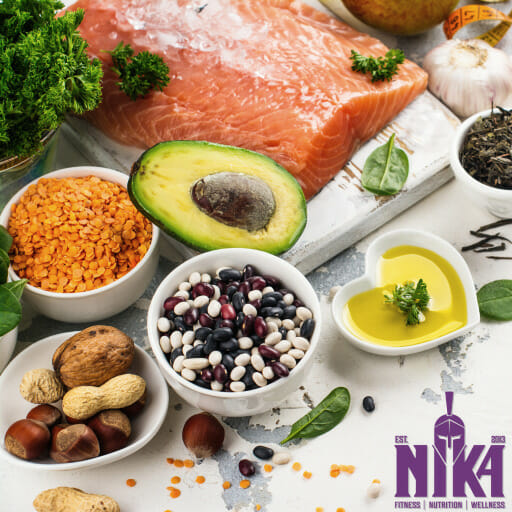Addiction is a word people throw around a lot when it comes to food. Especially processed food, which is clearly created to trigger insatiable consumption. For food manufacturers, more eating = more money, thus this is the behavior they want.
However, for some people, addition is not a joke. Let’s explore food addiction: what it is, how it’s different from “regular” overeating, and what helps.
Eating for pleasure is coded into our DNA.
I want you to understand this first: Pleasure-driven hunger—also known as hedonic hunger—is:
- Normal
- Natural
- Good
Humans evolved to a state where eating is pleasurable, so they would be motivated to seek out food. Plus, it’s simply delightful to enjoy what you’re eating. Whether that’s a sweet treat, or a fresh, crunchy salad, enjoy it. It’s also normal to overeat occasionally, whether intentionally or unintentionally.
Eating happens on a continuum.
On one end, there’s eating that just about matches your physical energy needs (typically resulting in a stable body weight).
On the other end, there’s food addiction, where eating far surpasses your energy requirements, and yet you don’t feel like you can stop.
How do you know it’s food addiction?
Food addiction affects 2 to 11% of people in Western countries, with rates highest in the US. Although food addiction has many similarities to binge eating disorder, food addiction is different in a few ways:
- Escalating consumption: To get the desired effect (comfort, numbing, a “high”), you feel like you have to eat more and more food. Eating may be almost constant (rather than contained to distinct binges).
- Mental preoccupation: You spend so much time thinking about and getting food, that it begins to take over other areas of your life (like work or relationships).
- Negative consequences: You continue to overeat despite unwanted effects like digestive problems, unwanted weight gain, mobility issues, or other related health problems.
- Experiencing withdrawal-like effects: When you’re not eating, you feel irritable, sad, tired, or physically tense. These symptoms are typically relieved by eating.
This is so important to understand: Food addiction is not anyone’s “fault.”
Research is still emerging, but we know that food addiction is associated with a number of biological, social, environmental, and psychological factors. For example, food addiction is more likely…
- in people who have experienced trauma or abuse
- in environments where heavily processed food is the most, and sometimes only, food available, such as in “food deserts,” or areas that have poor access to affordable, fresh, and minimally-processed food.
- after a period—or a lifetime—of restrictive dieting or yo-yo dieting.
- in people who have greater dopamine responses to food, meaning they’ll be more likely to experience pleasure from eating, and feel more motivation to seek out that pleasure again.
How to Help
As a coach, I cannot diagnose or treat food addiction, or any other form of disordered eating. But how can I help?
- Develop awareness of triggers—what feelings, experiences, places, or people provoke the urge to eat?
- Rather than nutritional value, we can focus on how foods feel. This can help you identify foods that genuinely feel good in your body, and align with your values. Over time, this can build a more positive, practical relationship with food.
- Work with you to build up your self-care tool boxes. Compulsive eating is often triggered by stress or loneliness, so I encourage you to pursue activities that feel relaxing, empowering, and build a sense of connection.

